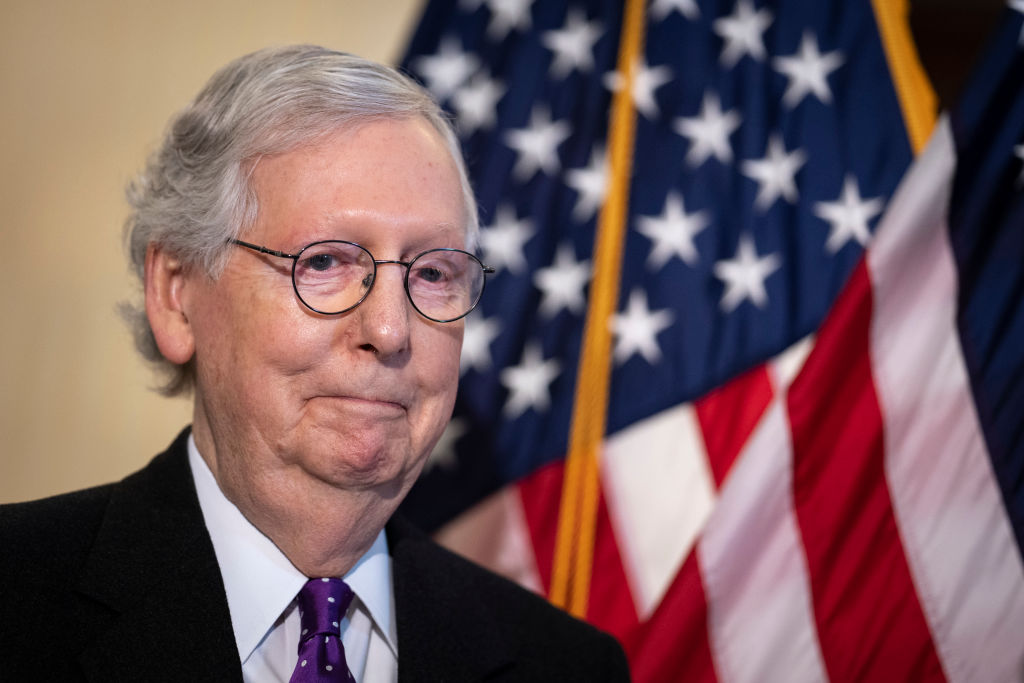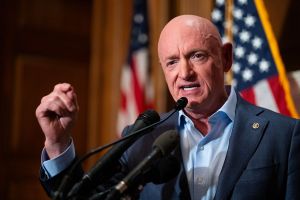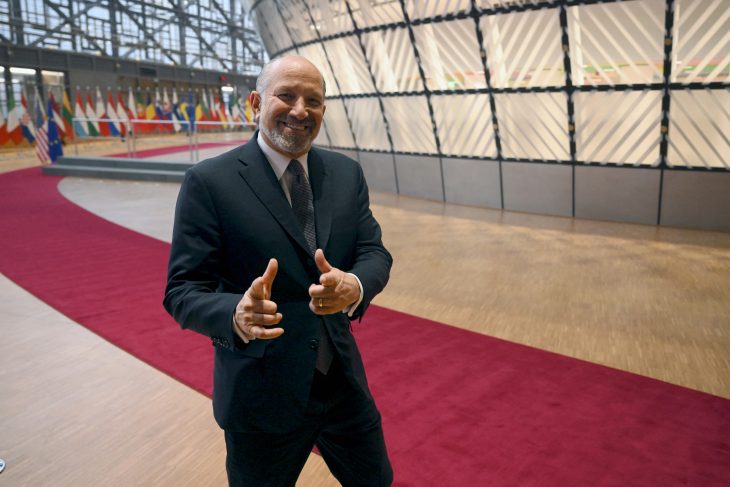Just a few months ago, Blake Masters was strongly criticizing Republican Leader Mitch McConnell, expressing hopes, as other conservative candidates have this cycle, that he would receive a viable challenge to his Senate leadership after November. But on Friday, Masters was sounding a different tune, outright hoping that McConnell would back his campaign in the Arizona Senate race as the Senate leader has for J.D. Vance in Ohio.
“I’ll tell Mitch this to his face,” Masters said during a GOP primary debate in June. “He’s not bad at everything. He’s good at judges. He’s good at blocking Democrats. You know what he’s not good at? Legislating.”
On Friday, Masters predicted McConnell will get another term as GOP leader and no Republicans will challenge him.
“I think he’ll be in charge. And I’m not just going to be a senator that falls in line to whatever he says,” Masters told construction company officials. “I’ll hear him out. I’m happy to listen. But my vote doesn’t belong to Mitch McConnell. It doesn’t belong to Donald Trump.”
Masters’s experience is unique in this election cycle. It’s a dynamic conservatives have seen before: candidates go from harsh McConnell critics in their primaries, appealing to grassroots voters infuriated by McConnell’s establishment ways, to sounding more amenable tones after winning their nominations.
There had been some hope in conservative circles that by shifting multiple seats away from long-time McConnell loyalists and banking on the open hatred Donald Trump has for the longtime leader, 2022 could be the beginning of the end for Mitch. But at this stage, even if Republicans see an influx of new blood, the need for money to get there outweighs the price of eating crow.
Of course, the unspoken reality is that behind Masters’s request and the Vance expenditures is Trump’s own decision to sit on his pile of gold instead of spending on the Senate candidates he’s endorsed. His Save America Super PAC could be the alternative funding source these candidates need. But even sitting on a massive war chest and reaping the financial benefits of outrage over the Mar-a-Lago FBI raid, they’ve spent little cash on actually backing candidates.
Conservative grassroots donors have been hit hard by a bad economy and inflation, and have to prioritize their giving. Trump’s fundraising dominance — in a cycle where he isn’t even on the ballot — is essentially eating up the small dollar money that would otherwise be available for Senate candidates. This is leading them to be more dependent on McConnell and traditional GOP business supporters than they might have been otherwise.
After Trump’s loss in 2020, his focus on bashing electoral fraud allegations and Governor Brian Kemp in Georgia — whose unsuccessful primary opponent this cycle, David Perdue, is one of the few his PAC has financially backed — did nothing to help McConnell maintain a Republican majority in the pair of expensive runoffs. Since then, Trump has played nicer with traditional GOP interests, taking a “can’t we all just get along” approach shepherded in part by Kevin McCarthy in the House and Rick Scott in the Senate. This has prevented Trump from throwing his backing behind problematic Senate candidates like Missouri’s Eric Grietens.
The problem of these underfunded campaigns represents a key test: how will Trump and his team make the transition to the new establishment of a Republican Party they now effectively run? The answer depends on understanding something basic: unity runs in two directions. A diminutive version of Trump would find it sufficient to destroy candidates he dislikes in primaries with those he prefers. One who wants to lead the Republican Party would understand it only matters if you get them elected.

























